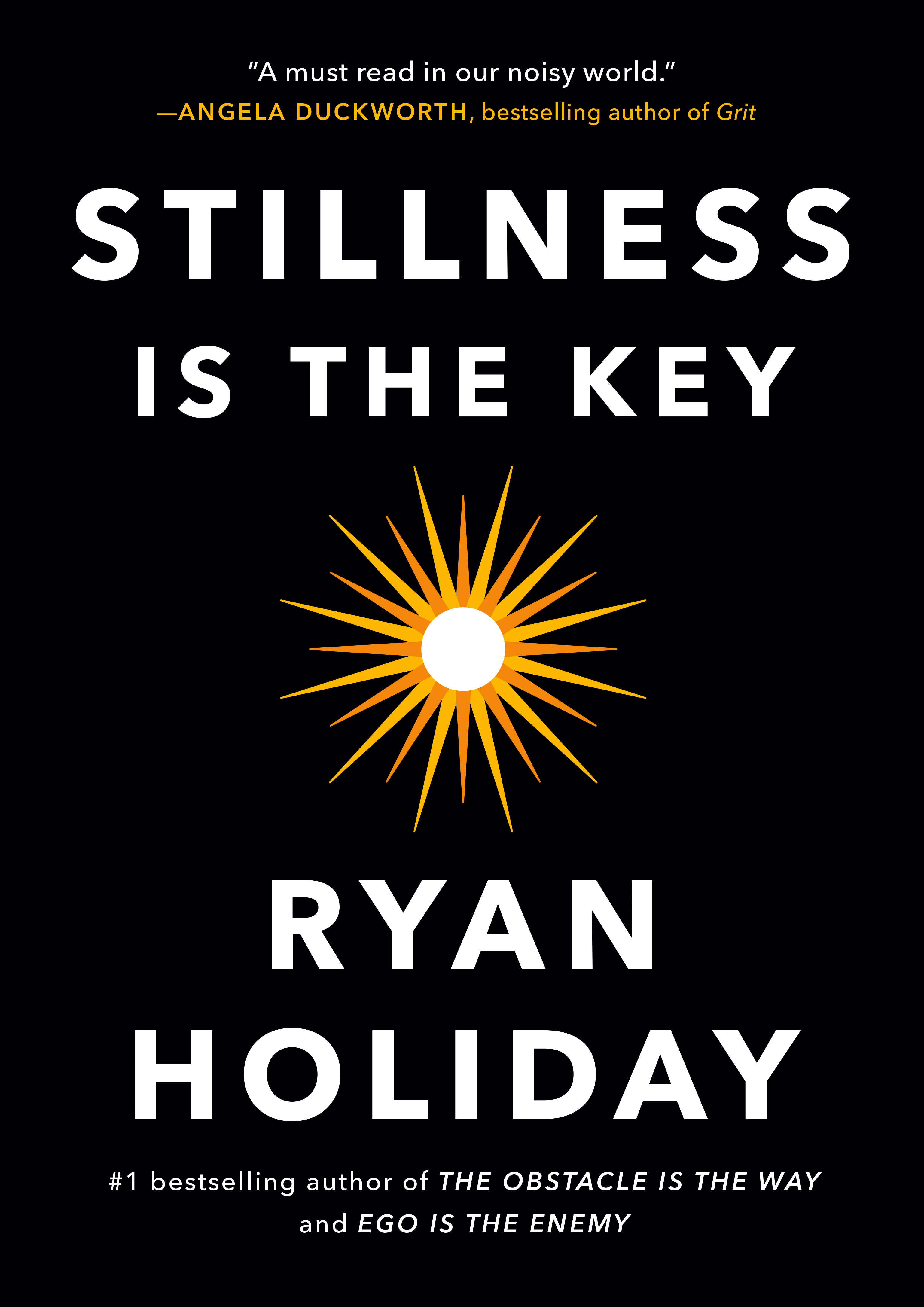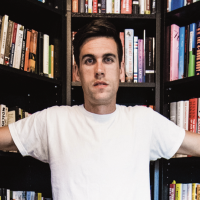
~
Stillness Is the Key by Ryan Holiday is available wherever books are sold. You can order the book here.
~
Despair and restlessness go together.
The problem is that you can’t flee despair. You can’t escape, with your body, problems that exist in your mind and soul. You can’t run away from your choices—you can only fix them with better choices.
There’s nothing wrong with a good vacation (particularly if the aim is solitude and quiet) or a round of golf, just as there is nothing wrong with cracking a beer to take the edge off. Certainly, Churchill loved to travel and enjoyed champagne, though he stunk at golf.
But too often, the frenzied or the miserable think that an escape—literal or chemical—is a positive good. Sure, the rush of traveling, the thrill of surfing, or the altered state of a psychedelic can relieve some of the tension that’s built up in our lives. Maybe you get some pretty pictures out of it, and some pseudo-profundity that impresses your friends.
But when that wears off? What’s left? Nixon watched nearly 500 movies during his time in the White House. We know the darkness he was running from. There’s no question that for Tiger Woods, his addictions were, in part, driven by a desire to escape the pain leftover from his childhood. But each time he hopped on a private plane to Vegas instead of opening up to his wife (or to his father while he was still alive), he was setting himself up for more pain down the road.
Each time John Fante hit the golf course instead of the keys of his typewriter, or went out drinking instead of being at home, he might have felt a temporary escape, but it came at a high cost.
When you defer and delay, interest is accumulating. The bill still comes due…and it will be even harder to afford then than it will be right now.
The one thing you can’t escape in your life is yourself. Anyone who’s traveled long enough knows this. It’s eventually clear we carry with us on the road more baggage than just our suitcase and our backpacks.
Emerson, who in his own life traveled to England and Italy and France and Malta and Switzerland (as well as extensively across America), pointed out that the people who built the sights and wonders that tourists liked to see didn’t do so while they traveled. You can’t make something great flitting around.
You have to stick fast, like an axis of the Earth. Those who think they will find solutions to all their problems by traveling far from home, perhaps as they stare at the Colosseum or some enormous moss-covered statue of Buddha, Emerson said, are bringing ruins to ruins. Wherever they go, whatever they do, their sad self comes along.
A plane ticket or a pill or some plant medicine is a treadmill—not a shortcut. What you seek will come only if you sit and do the work, if you probe yourself with real self-awareness and patience.
You have to be still enough to discover what’s really going on. You have to let the muddy water settle. That can’t happen if you’re jetting off from one place to another, if you’re packing your schedule with every activity you can think of in order to avoid the possibility of having to spend even a moment alone with your own thoughts.
In the fourth century BC, Mengzi spoke of how the Way is near, but people seek it in what is distant. A few generations after that, Marcus Aurelius pointed out that we don’t need to “get away from it all.” We just need to look within. “Nowhere you can go is more peaceful—more free of interruptions,” he said, “than your own soul.”
The next time we feel the urge to flee, to hit the road, or bury ourselves in work or activity, we need to catch ourselves. Don’t book a cross-country flight—go for a walk instead. Don’t get high—get some solitude, find some quiet. These are far easier, far more accessible, and ultimately far more sustainable strategies for accessing the stillness we were born with.
Travel inside your heart and your mind, and let the body stay put. “A quick visit should be enough to ward off all,” Marcus wrote, “and send you back ready to face what awaits you.”
~
Excerpted from Stillness Is the Key by Ryan Holiday in agreement with Portfolio, an imprint of Penguin Publishing Group, a division of Penguin Random House LLC. Copyright © Ryan Holiday, 2019.










Read 1 comment and reply